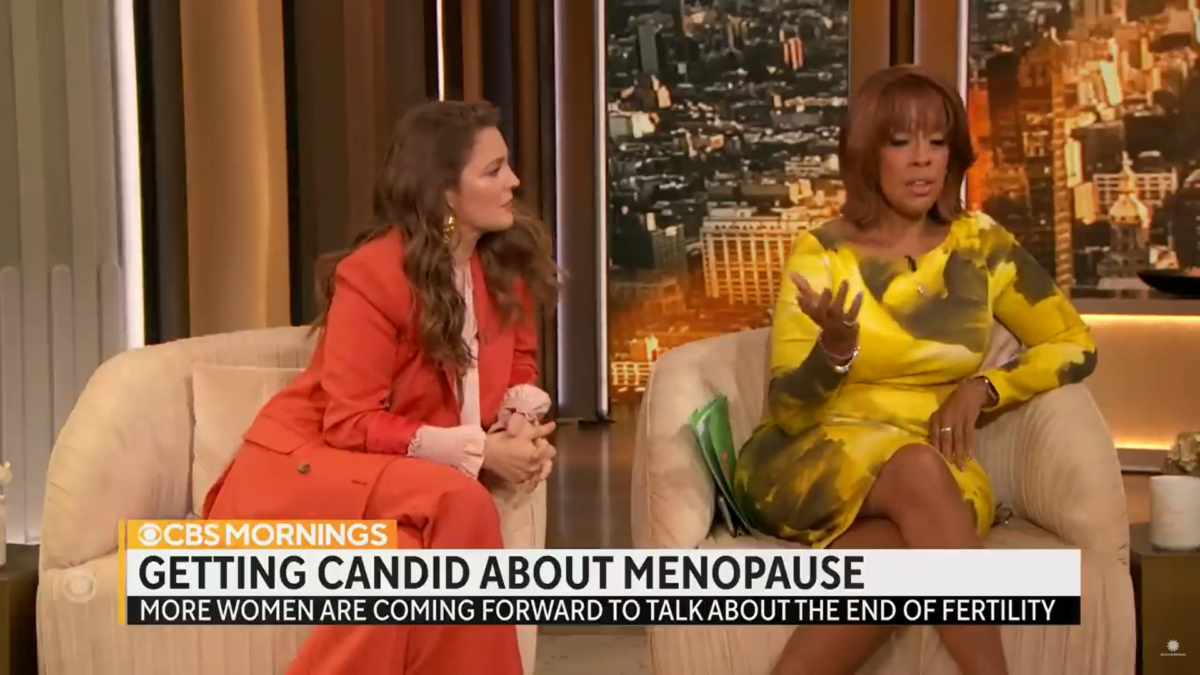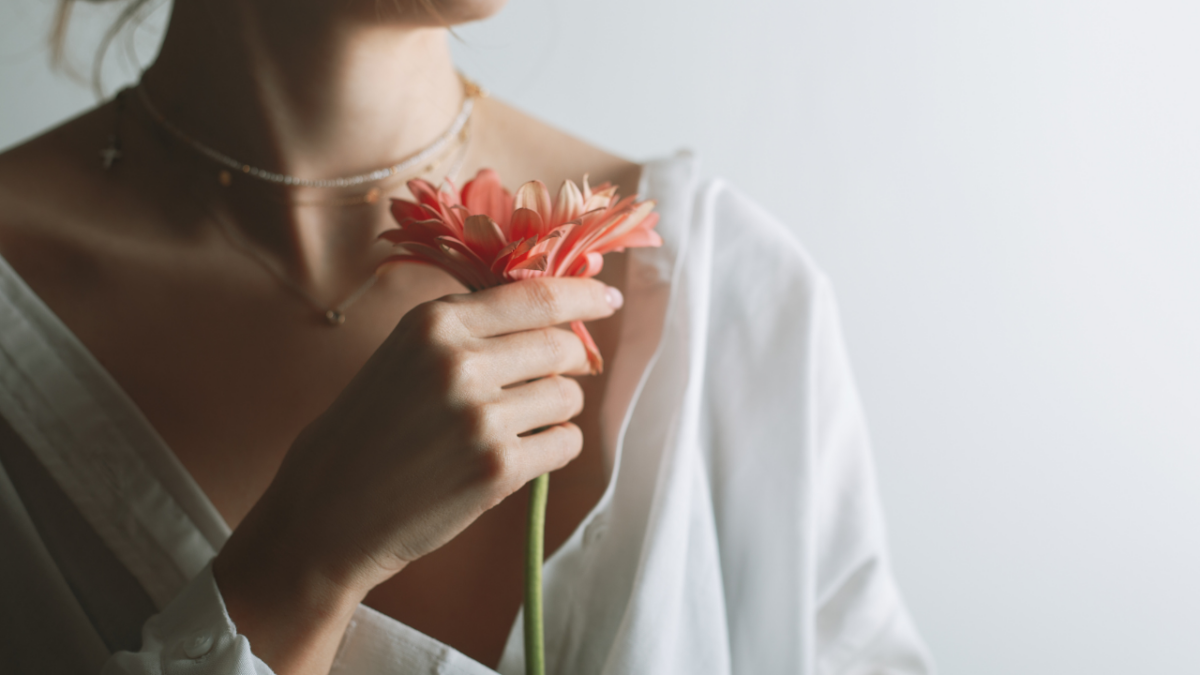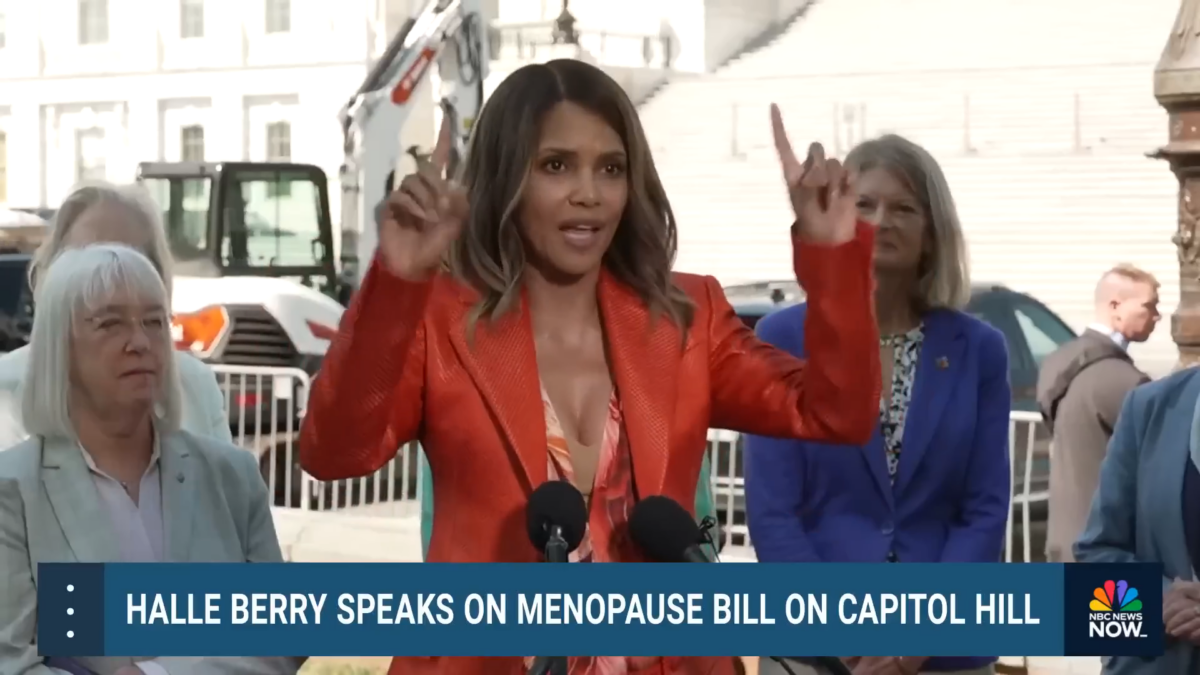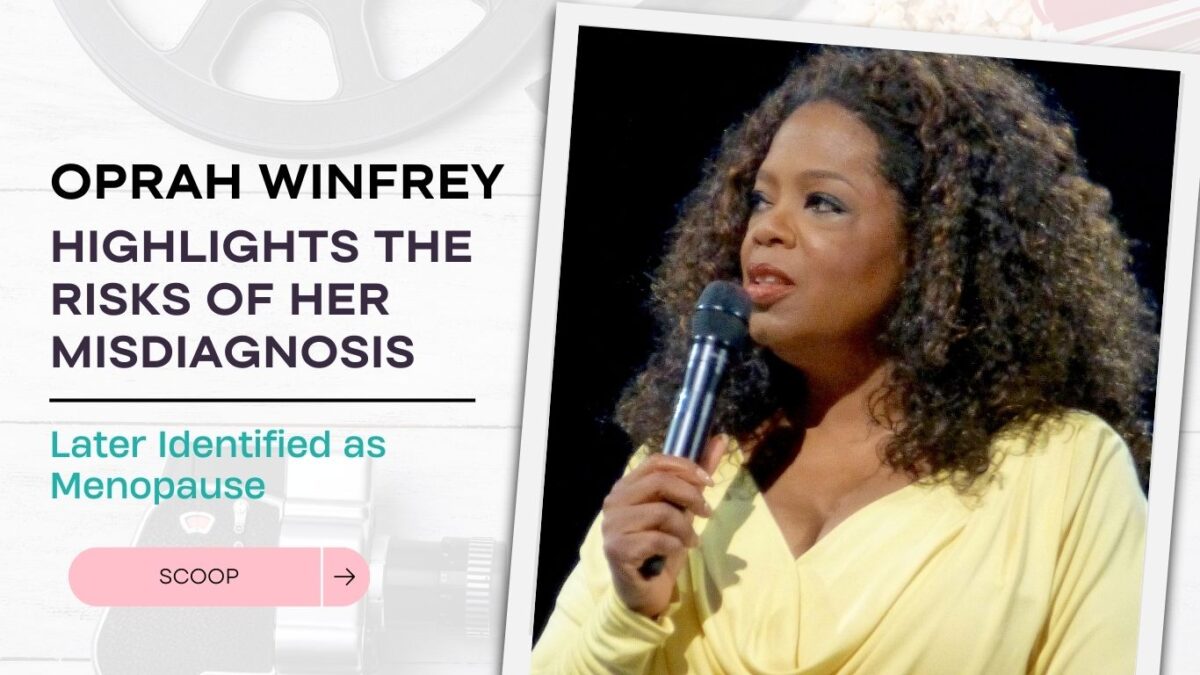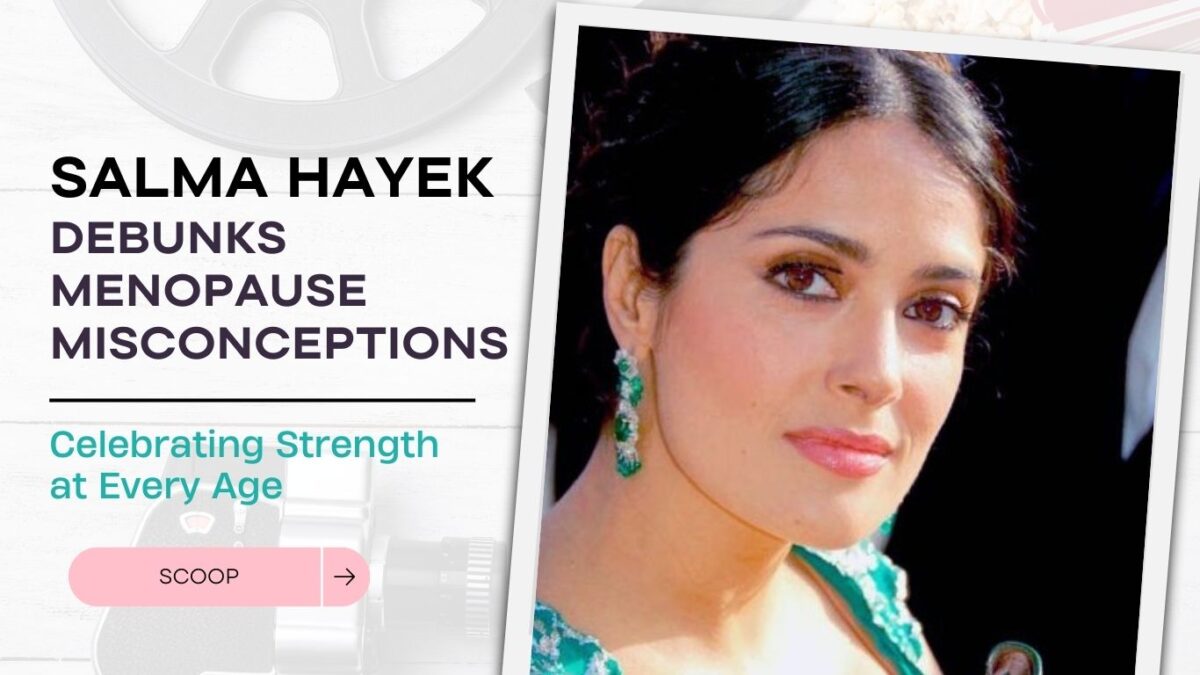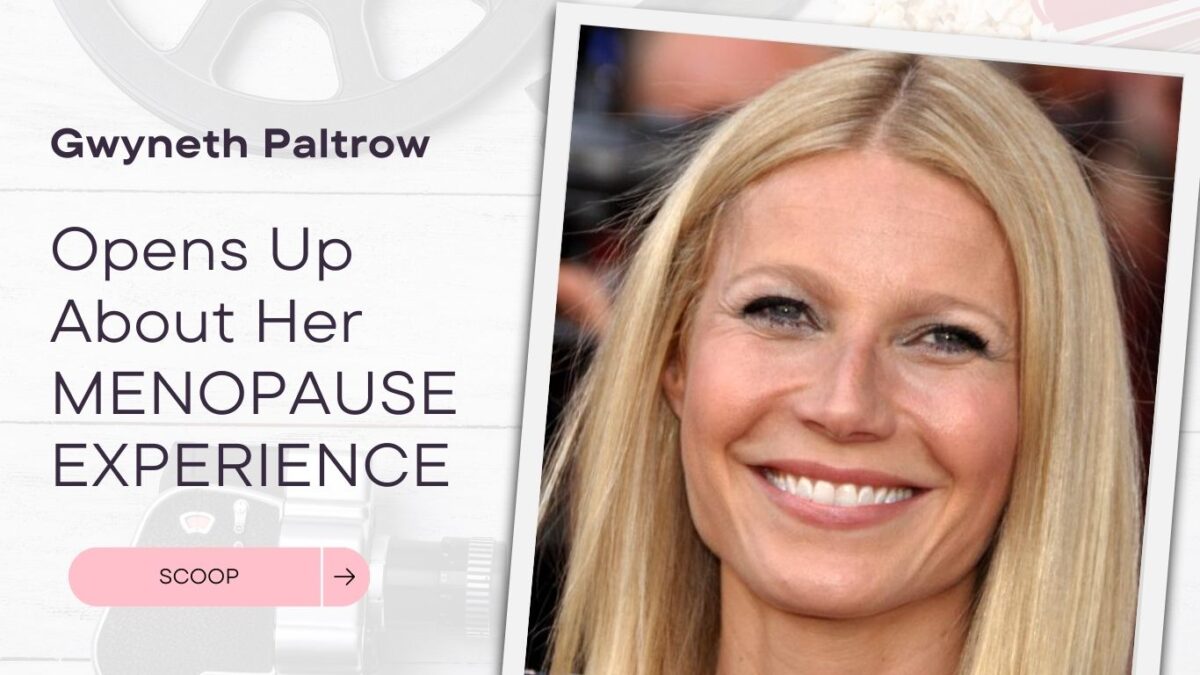Embracing Menopause: Let’s Talk About It Like Never Before!
In a refreshingly honest chat, Hollywood star Drew Barrymore, Gayle King, and journalist Nikki Battiste tackled menopause—yup, the big “M” that’s often kept under wraps. As part of CBS Morning’s “Facing Fertility” series, they’re spilling all the details about what it’s really like to experience menopause, sharing the highs, the lows, and even some laughs along the way. Let’s dive into this enlightening (and pretty hilarious) conversation on what women go through during menopause, why we should talk about it more, and how we can all approach it with a bit more understanding.
So, What’s the Deal with Menopause and Perimenopause?
Menopause is that life stage when the body wraps up its baby-making days, usually around age 51. But here’s the twist—before you hit menopause, you get to know its little cousin: perimenopause! This is the fun phase where things get, well, unpredictable. Periods get wonky, hormones go haywire, and symptoms pop up out of nowhere. Drew and Gayle shared how they were completely blindsided by some of the changes, like periods every two weeks and surprise hot flashes.
Drew recounts how her period suddenly doubled up, leaving her thinking, “What’s going on?” Gayle, on the other hand, recalls those infamous hot flashes—the ones that make you feel like you’re roasting from the inside out. As Gayle explains, these flashes aren’t just a quick warm-up; they can turn you into a sweaty mess at the worst times (imagine the red carpet!). Their honesty about these early signs of menopause makes it clear that more women need to hear about perimenopause, so they’re not left wondering if they’re the only ones going through it.
Beyond the Hot Flashes: Let’s Get Real About the Symptoms
Yes, hot flashes are part of it, but there’s a whole menu of menopause symptoms. Enter the infamous dryness (if you know, you know) and mood swings that feel like they belong in a soap opera. These symptoms can be uncomfortable, even embarrassing, but they’re part of the ride, and it’s time we talk about them without whispering.
Dryness, for example, is usually left out of the conversation, even though it affects so many women. As Drew and Gayle pointed out, it’s high time we laugh about it, normalize it, and stop hiding in silence. Gayle even quips that when she told people about her hot flashes, they’d almost whisper back, as if it was something scandalous. It’s just menopause, folks! By sharing these details, they’re helping make menopause less of a “secret club” and more of a reality that we all understand.
To HRT or Not to HRT?
The big question: Hormone Replacement Therapy (HRT)—yay or nay? Some women swear by it, while others, like Drew and Gayle, have decided to go the natural route. For some, HRT is a lifesaver, but it’s all about personal choice. Gayle explains that she wasn’t sold on HRT because her doctor seemed a bit too eager. Drew, meanwhile, just wanted to see how she’d fare without it before making any big moves.
Their takeaway? You don’t have to be a hero if you don’t want to be. Whether you go with HRT or not, it’s your choice, and it’s all about finding what works for you. Plus, as the ladies point out, it’s really important to get good advice from a doctor who actually listens to your needs.
Busting the Menopause Myths
The stereotype of menopause as some sort of “you’re old now” milestone is as outdated as bell-bottoms. When people think of menopause, they think of women over the hill, with their best days behind them. But as Drew and Gayle argue, menopause doesn’t mean you’re old, washed up, or ready to retire to a knitting circle. Nope—women are redefining what it means to be in their 40s, 50s, and beyond. They’re vibrant, confident, and very much still thriving!
Gayle points out that we need to stop associating menopause with being “done.” Just because society has traditionally viewed menopause as the end of a woman’s prime doesn’t mean we have to stick with that narrative. Michelle Obama’s mantra, “No shame in my menopause game,” is all about taking pride in this stage of life. These ladies are proving that menopause is just another chapter—and it can be a pretty fabulous one, too.
Let’s School the Kids
One of the coolest things they brought up? Teaching kids about menopause! Yeah, that’s right—boys and girls. Gayle and Drew agree that talking to children about these changes, especially boys, could lead to a world where menopause isn’t seen as strange or embarrassing. The goal? Helping the next generation grow up with empathy and understanding about what women experience, instead of brushing it off as “icky.”
By educating both girls and boys, they hope to create a more open, accepting society where menopause isn’t a punchline or a secret. Drew and Gayle both say they want to raise kids who are comfortable with these conversations, so no one has to face menopause like it’s some big unknown.
Redefining the Big M
The conversation wraps up with each of the women sharing a single word they associate with menopause. Drew says “reality,” while Gayle chooses “natural.” Their point? Menopause is a normal part of life, not some crisis to be hushed up. For these women, it’s about approaching menopause as a new adventure, one they’re ready to tackle with humor, honesty, and a lot of support.
For far too long, menopause has been the “Voldemort” of women’s health—the thing that shall not be named. But by chatting about it openly and adding a dose of humor, Drew, Gayle, and Nikki are helping make menopause something we can talk about freely. This conversation isn’t just about hot flashes or HRT; it’s about lifting the curtain on a big part of life that every woman faces.
So, here’s to menopause! It’s real, it’s natural, and thanks to people like Drew and Gayle, it’s no longer just a whispered word. They’re here to remind us all that menopause is just another step on the journey—one that’s definitely worth talking about.
Disclaimer: This article is based on the insightful and candid conversation featured on CBS Mornings as part of their “Facing Fertility” series. Special thanks to CBS Mornings, Drew Barrymore, Gayle King, and Nikki Battiste for shedding light on this important topic and encouraging open discussions about menopause.

